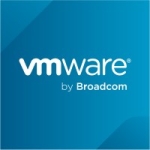When we migrated to Tekton, IBM Continuous Delivery provided pipelines, which you can run on Tekton. Tekton provides a feature where you can schedule the job. You can just go and create schedule triggers. Since part of our services has to go through audit, compliance, and monitoring, we had to run multiple operational tasks in our day-to-day job. These tasks included monitoring our database backup and scanning the servers or applications we were running.
We have to scan the Docker images we run on IKS and OpenShift clusters to ensure the running server doesn't contain any CVEs. We have jobs in place to scan those images. We need to track all this as part of our automation jobs. We have a small team of two to three members, and we have come up with a lot of automation tools. We started running all this using Tekton pipelines, which has been greatly helpful for us. It has become very productive and saved a lot of time for our team and many other teams.
We started generalizing our tools and sharing them with others. All the cloud services have been using it because they have to go through the same audit, same compliance, and same monitoring use cases. Instead of them coming up with their own automation, we have come up with a common toolchain.
We created the template and shared it with the cloud service team. They started using it, which saved resources and time for multiple things. Last year, that was a major achievement. Tekton has been very useful in scheduling data. We don't need to worry about getting reports, collecting evidence, or monitoring everything because they are being done perfectly.
As part of our CI/CD, anything we do today runs on a Tekton pipeline. If we are doing continuous integration and deployment, we run it on a Tekton pipeline. Since we have been using different languages like Java, Go, Node.js, and React.js in our development work, we have to integrate security checks. From day one, we have to integrate security into our development.
As part of continuous integration, we have started adding those tasks. That has beautifully worked for us. All the security checks as part of continuous integration or delivery ensure that we are not deploying any vulnerable images, vulnerabilities, or CVE packages in our production server. We are adding all those security checks as part of our CICD. We can add small checks as part of Go or run a Go scan. That was one good thing that was helpful for our team and many other teams.
I'm part of one of the open-source projects. When any event occurs, I want the pipeline to run by itself. If a security event is triggered, the pipeline should detect and automatically remediate it, which does not currently happen.
Tekton should include many features to integrate event-driven pipelines. For example, when GitOps triggers an event, you have to trigger a pipeline. Such event-driven things could be improved.
I have been using Tekton for four years.
Tekton is a stable product. You can run your pipeline on your own machine. I don't want to run this pipeline in a managed worker or somewhere where other services are maintained. I can have my own private worker and run the pipeline there. The machine on which I'm running Tekton could be a compliant machine.
I rate the solution’s stability a nine out of ten.
Tekton is a scalable solution.
I rate the solution’s scalability an eight out of ten.
We used to run all of our operational jobs using Jenkins jobs. We had set up virtual machines to run the Jenkins server, and it used to go in a queue and take a lot of time. As all cloud services were using the same server, it was getting into a queue and taking time to deploy. We were facing a lot of issues, and it was affecting our productivity. Then, we decided to migrate to Tekton.
The continuous delivery team internally integrating Tekton might face challenges, but we haven't faced any challenges implementing the tool.
I would highly recommend Tekton to other users because it's faster and more productive. For example, all our IBM Cloud Services initially used Jenkins as a pipeline for all the operational and compliance-related work. Now, everybody is migrating to Tekton and using it.
Overall, I rate the solution a nine out of ten.

























